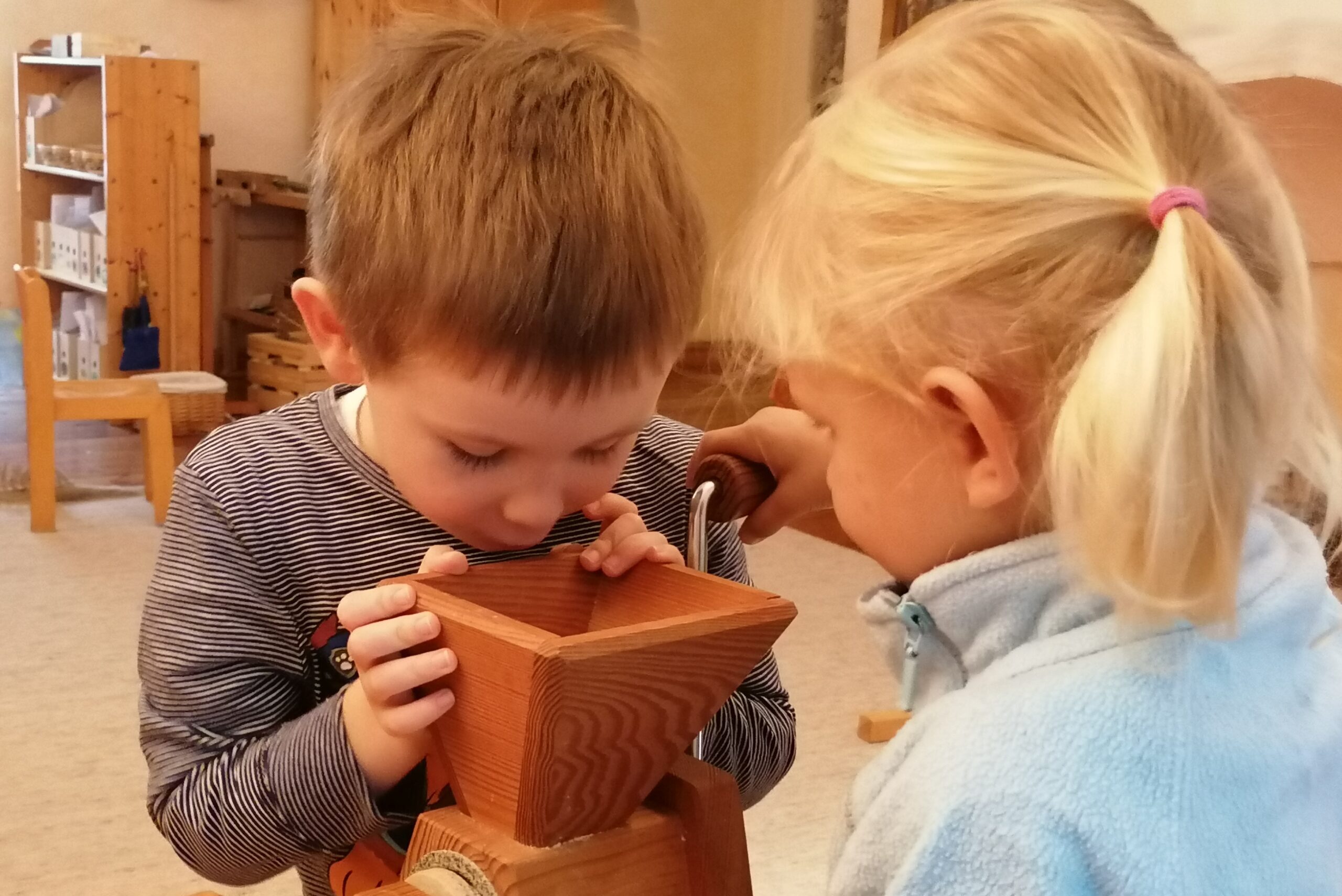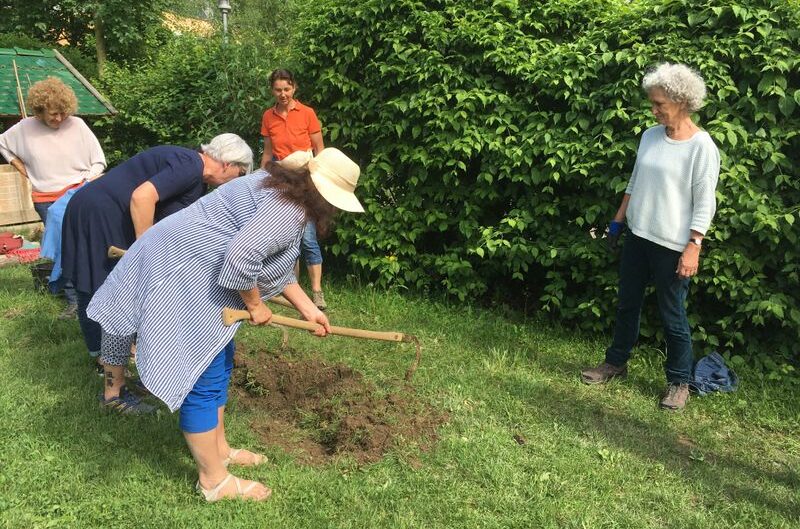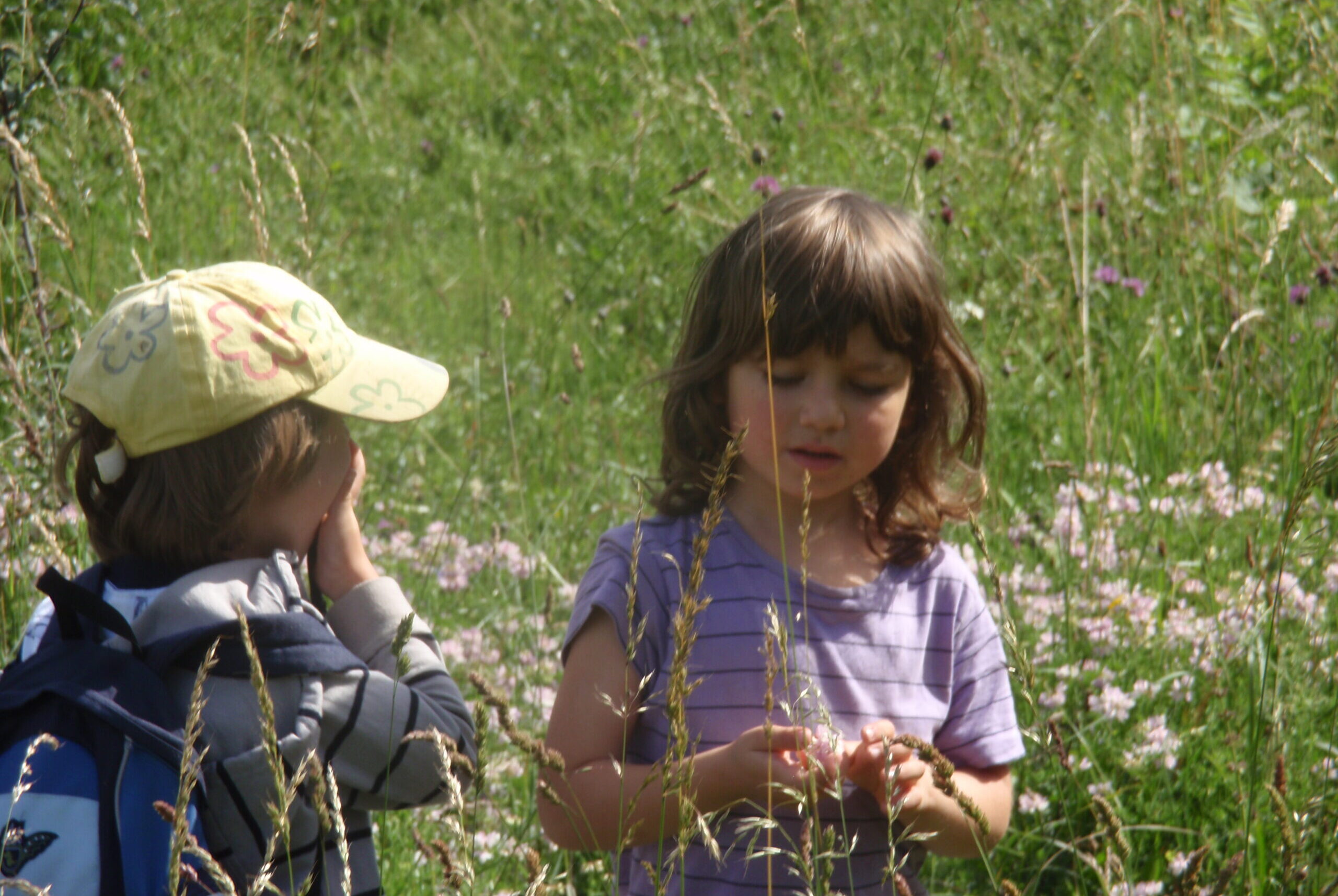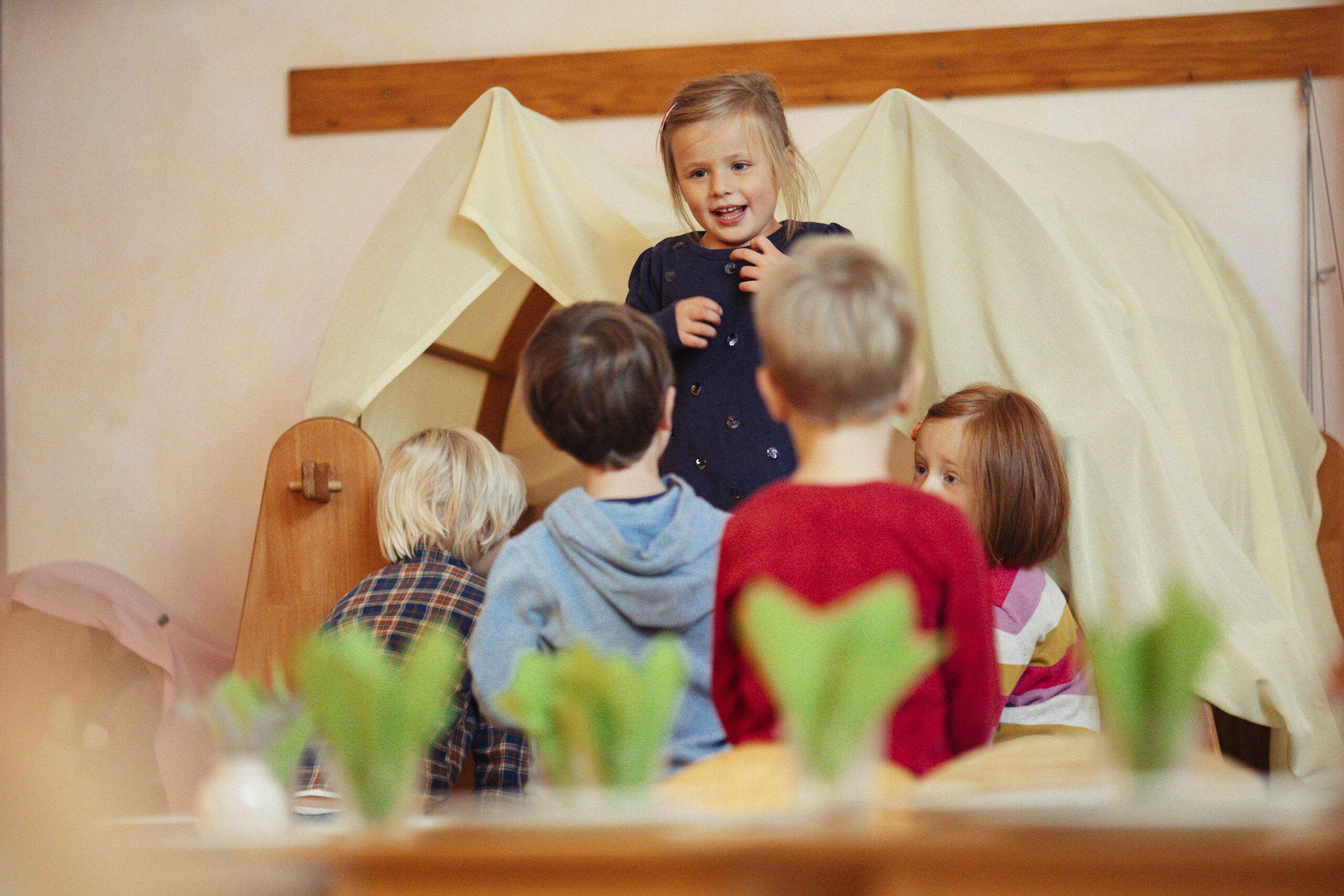In Austria, around 1300 children are currently cared for in 37 Waldorf kindergartens. There are 22 Birth to Three groups attached to existing kindergartens.
Although the demand for kindergarten places is still increasing in Birth to three sector and in all-day care, there are increasing fluctuations in the number of children, partly due to growing mobility and changes in the living conditions of families.
Children generally start school at the age of six.
Depending on the federal state, parental contributions are currently subsidized by the state up to a maximum of 80%.
The work on the educational community of parents and educators through careful introduction to pedagogy, support and advice is taking up more and more space and time.
A look back. In the mid-20s of the last century, there was a lively anthroposophical life in Vienna and there was great enthusiasm for Rudolf Steiner’s impulses, including a renewal of pedagogy. The first kindergarten was established in Vienna in 1927. In the post-war years, there were renewed initiatives from 1955 onwards, until Waldorf education finally gained a foothold in kindergartens in all of Austria’s federal states in 2012. As a rule, kindergartens were founded at the same time as the now 20 schools. Kindergartens with one to five groups as well as the schools are located both in urban areas and in very rural areas, whereby the inclusion of nature is a concern everywhere.
Cooperation within the Waldorf Association Austria. Waldorf schools and kindergartens are members of the Waldorf Association Austria, which was founded in 1981 and represents the interests of Waldorf institutions nationwide.
Cooperation and exchange takes place in regular meetings between representatives of the schools in the working groups for education, business, parents, public relations, quality development and in the kindergarten working group.
The kindergarten working group is organized as a federal state representation of the kindergartens. Pedagogical, legal and organizational guidelines are initiated here and cooperation is coordinated. An annual advanced training conference is also held.
The current cycle of conferences The kindergarten as a place of healthy development has been running since 1922 and – starting with the work on the earth – relates the fields of life of anthroposophy “from the ground up” to the core educational task with a further focus each year. The deepening and continuous supplementation of the topics proves its worth. (See picture).
In 2019/20, all working groups of the Waldorf Association worked together to develop Guidelines for self-administration. In 2020/21, the first Training course for kindergarten management took place on the basis of self-administration. The new course from 2024 is also open to administrative quality development as a Basic course for self-administration.
Pedagogical training courses. Training in Waldorf kindergarten pedagogy was founded in 1990 as a 3-year part-time Waldorf Kindergarten Seminar in Vienna. It has produced around 300 active kindergarten teachers to date. The participants have either already completed state training or state recognition can be obtained through a one-year advanced training course.
Since 2002, the Waldorf-Seminar-Salzburg has also been running a 3-year in-service-training course in Waldorf kindergarten education.
In 2022, the Waldorf Seminar Salzburg was able to launch a Basic Course in education from Birth to three which had been missing for some time and in which many teachers already working in Birth to three groups also took part. The course will start again in fall 2024.
Current further tasks for the future. The fulfillment of the educational mission in Waldorf kindergartens in comparison to the requirements of the state educational framework plan for elementary educational institutions was newly developed as a basic concept in 2024. This is available to all colleges to supplement according to the respective institution.
Ways of ensuring quality in training for early childhood and kindergarten education and in the daily practice of Waldorf education must continue to be developed.
The expansion of mentorship, the support of colleges and boards as well as the possibilities for covering the increasing demand for personnel constantly raise questions.
There is still room for improvement in the regional, national and international networking of kindergartens.
Status May 2024
Ursula Dotzler, Kindergarten Wien-Mauer, on the working group and board of the Waldorf Association Austria and member of the IASWECE Council



